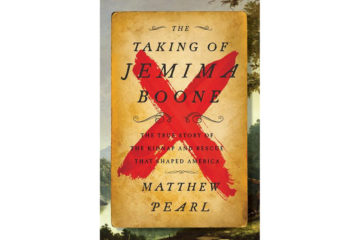Barbara Spindel in The Christian Science Monitor:
 “An argument without end” is how Joseph J. Ellis characterizes history in “The Cause: The American Revolution and Its Discontents, 1773-1783,” one of several notable fall releases on America’s Revolutionary War era. Like “The Cause,” new works by historians H.W. Brands and Woody Holton and novelist Matthew Pearl, making his nonfiction debut, are evidence that when it comes to the story of America’s origins, the argument continues to evolve. These books look beyond the Founding Fathers to consider early American history from a fascinating range of perspectives.
“An argument without end” is how Joseph J. Ellis characterizes history in “The Cause: The American Revolution and Its Discontents, 1773-1783,” one of several notable fall releases on America’s Revolutionary War era. Like “The Cause,” new works by historians H.W. Brands and Woody Holton and novelist Matthew Pearl, making his nonfiction debut, are evidence that when it comes to the story of America’s origins, the argument continues to evolve. These books look beyond the Founding Fathers to consider early American history from a fascinating range of perspectives.
The title of Ellis’ engaging military and political history derives from the name that the colonists gave their rebellion against the British Empire. The conflict was not, at first, referred to as a revolution: The colonists’ original demands, to be accorded their full rights as British citizens, were hardly revolutionary. The changing meaning of The Cause, which eventually came to encompass independence, was reflected in Thomas Paine’s visionary and transformative 1776 pamphlet “Common Sense,” which shifted the conversation from British rights to natural rights.
The author deftly examines how that broader meaning, with its expansive view of freedom and liberty, could coexist with the denial of the rights of enslaved people and Native Americans. The American republic, he observes, “was born betraying the principles it claimed to be founded on.”
More here.
